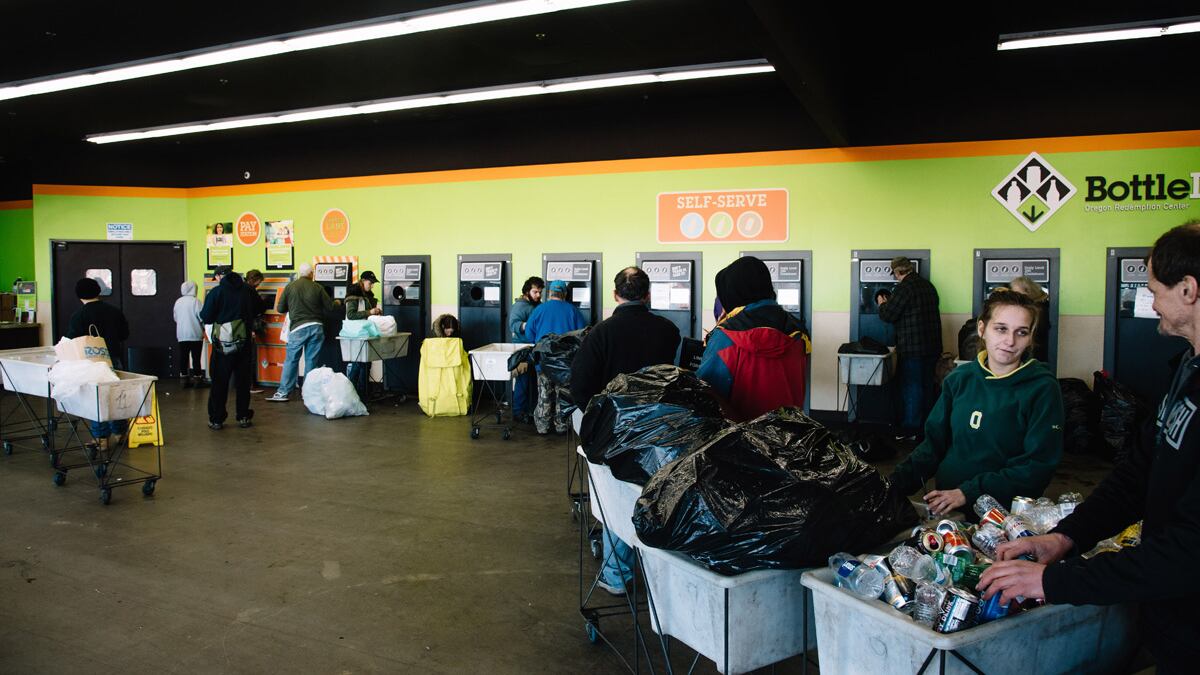Twenty-five years ago, I tried redeeming Washington cans at my local Cub Foods and got denied. Later, I saw that our cans were stamped "5¢ redemption value," while Washington's said "no redemption value." There used to be a difference. —Pooya
This is one of those rare moments when I wish I really did write this column the way most folks think I do, with a combination of guesswork, vaguely remembered half-truths, and just making shit up.
When readers began writing in about Washington bottles being rejected by Oregon redemption machines decades ago, it sounded right (spoiler alert: It was). I even seemed to recall trying a bit of the old bottle fraud back in the '90s and getting busted myself.
This raised the obvious question—if we knew how to prevent fraud in the '90s, why not just do the same thing now?
This is where I should have guessed, based on those half-remembered facts. If I'd thought about it, I probably could have come up with the correct answer. Instead, I consulted the experts.
I'm not going to call anyone out by name—starting a hip-hop beef with the Oregon Beverage Recycling Cooperative is not my goal (as hilarious as the dis tracks in such a feud might be). But two officials there assured me they'd never heard of a way my memory (and yours) could be right. I passed that along to all of you.
In the spirit of shirking responsibility, I should note that I pushed back from the start, using phrases like "are you sure," "still, it seems odd," and "is it absolutely confirmed." I was assured my readers and I were probably misremembering.*
But then, Pooya, your very specific recollection tipped the balance. Finally, my sources acknowledged there may have been state-specific bottles and cans back in the day—though with global supply chains, etc., such a plan wouldn't be practical now. (I suspect widespread consolidation in the bottling and brewing industries may also have played a role.)
Sometimes, when you make a mistake, you've just gotta do the right thing: Man up, swallow hard, and blame somebody else. Dr. Know regrets the error.
* Watch for my upcoming memoir, Gaslighted by the OBRC!
